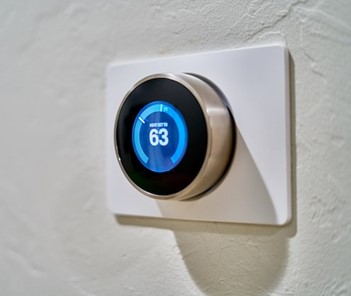Samantha Foss is a technology industry entrepreneur. In the following article, Samantha Foss discusses the Internet of Things in the home, and the devices that are revolutionizing domestic life.
The latest data shows the global smart home market is worth a whopping $78.34 billion. Analysts believe the key drivers behind the market's exceptional growth are more affordable costs, an increased desire to have a connected home, and the ever-improving technology.
And as the market is expected to reach $87.98 billion by the end of 2023, it appears to show no signs of slowing down. Consumers can already purchase a myriad of products to bring the Internet of Things (IoT) into their homes, with more devices on the horizon as the world propels itself into the future of domestic automation.
With fresh and exciting smart technology for homes flooding the market at all times, Samantha Foss says that the seven devices below have demonstrated the most promise and advantages over others (although it's by no means an exhaustive list):
Google and Amazon Voice Controllers
Samantha Foss says that most people in the developed world are familiar with Google's and Amazon's voice controllers. Since their birth, they swiftly became a household essential for those looking to bring the Internet of Things into their homes.
Google's model allows users to enjoy a plethora of features like songs and podcasts, lights, thermostats, volume, and alarms just by using their voice.
Likewise, Amazon's voice controller lets users play songs, call loved ones, manage alarms, ask questions, check the weather, manage shopping lists, and control connected household appliances.
August Smart Lock
Samantha Foss says that hundreds of smart locks exist, but the August Smart lock has made waves for its reliability and security.
Regardless of where users are, they can control their doors without hassle. Users can easily keep thieves out and their families safe while knowing who comes and goes through their homes.
Samantha Foss says that the auto-unlock feature remains a firm favorite, opening automatically when eligible users stand by the door.
Kuri Mobile Robot
Kuri is the original home robot and maintains its most popular status. Complete with expressive eyes, heart lights, and cap touch sensors, it captures heartwarming five-second moments of home life in HD.
Samantha Foss says that the robot quickly learns homes' floor plans and understands the moments users love the most via the app. Kuri ensures families never miss special moments by capturing friends, relatives, and pets without cues or commands.
The bot also comes with a speaker, allowing users to listen to their favorite audiobooks, songs, and podcasts, regardless of where they are in the home.
Nest Learning Thermostat
Samantha Foss reports that the Nest thermostat meets homeowners' desires for easy heating and cooling.
Once it's set up, the thermostat adapts its temperature according to households' daily activities and controls each room's temperature based on daily routines.
 Mr. Coffee Smart Coffeemaker
Mr. Coffee Smart Coffeemaker
Enabled by WeMo, the Mr. Coffee Smart Coffeemaker allows users to schedule brew times to ensure they have hot, fresh coffee whenever they want it.
The WeMo app syncs seamlessly to the machine, giving people the option to brew coffee from their car in time for their at-home arrival.
Singlecue Gesture Controller
The Singlecue is a universal remote control that uses gestures to control home theater systems and lighting without voice or pressing buttons.
While it may look like a speaker, it's actually a gesture-sensing control with a built-in camera and LCD display.
Through the app, users can add all their home theater and lighting devices. Following setup, residents don't need to use the app to control systems just hand gestures.
#7 Footbot Indoor Air Quality Monitor
Footbot monitors indoor pollution, enabling improved air quality. After measuring the level of pollution, the sleek device cleans the air, keeping humidity and temperature in check.
The Future of Automated IoT Homes
Samantha Foss says that the future of IoT in the home is squint-inducingly bright. Experts believe the automated home in ten years will have everything from robotic kitchen arms to energy-efficient light-up walls to smart showers to shape-shifting furniture to rollable televisions.